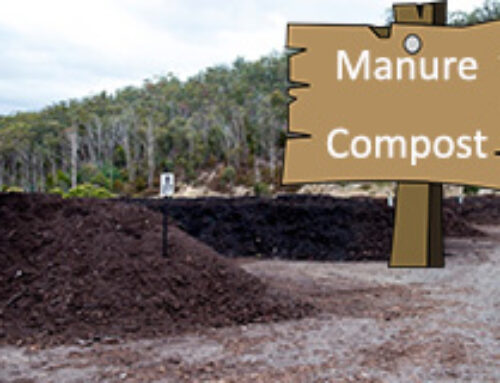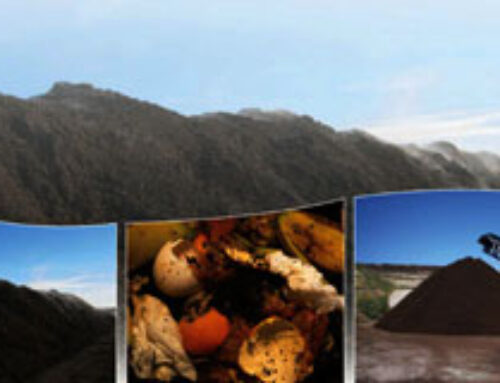Organic fertilizer refers to manure, containing a large number of biological materials, animal and plant residues, and waste material, biological organic fertilizer application can not only provide comprehensive nutrition for crops, but with long fertilizer efficiency it can also increase and renew the soil organic matter, promote the reproduction of microorganisms, improve the physical and chemical properties and biological activity of the soil, which is the main source of nutrients for the production of green food.
The development direction of world fertilizer is multi-component, multi-function, high efficiency, high concentration, and no pollution. Follow the combined path of organic, biological, and inorganic.
Present fertilizer business in Nigeria
Over 80% of all the fertilizer consumed in the country is imported. The current price of a bag(50kg) of fertilizer at the open market is N4,000 to N5,000. Fertilizer prices in some regions have risen 18.2% over than the previous year, about N7000 per bag(50kg). That is far more than the price farmers can afford, if this can not be blocked, it will affect Nigeria’s agricultural output. Agriculture is the largest sector of the economy in Nigeria. In 2016, agriculture contributes about 40% to the GDP with crops accounting for 80%. Nevertheless, there is a big difference between the actual production and the potential yield in Nigeria.
Problems caused by long-term use of chemical fertilizers
Nigeria’s annual demand for chemical fertilizer is 7-8 million tons, long term use of chemical fertilizers has a great influence on soil acidity. Chemical fertilizers contain physiologically acidic fertilizers such as superphosphate, ammonium sulfate, ammonium chloride, potassium chloride, etc., so the amount of H+ in the soil will increase after the plants absorb the nutrients in the chemical fertilizer. It is essential to reduce land degradation and increase the grain yield of existing cultivated land, management of soil fertility is an important measure to improve agricultural productivity and solve the problem of land degradation.
Transformation to organic fertilizer in Nigeria
Here is a clear comparison between organic fertilizer and chemical fertilizer:
| Organic Fertilizer | Chemical Fertilizer |
| Environmental friendly to the soil and crop and human | Harmful to the crop, soil, and humans |
| It enhances soil structures, water retention ability and also support increased microbial activities in the soil |
Excess application destroys the soil structure, and the microbial activities in the soil and does not enhance the water retention ability of the soil. |
| The excess application does not affect the soil or the plant | Excess application leads to soil acidity and also kills the plant |
| Prevent erosion | Causes erosion |
Nigeria presently imports several Million tons of chemical (inorganic) fertilizers for distribution and sale to Local farmers, the importation of these chemical fertilizers by the government deplete the very scarce foreign exchange of the African countries, worst still the chemical fertilizer portends danger to the soil, crop and the final consumer. This fact means that there is a huge market for organic fertilizers in this continent.
Manure, crop residues, and other organic fertilizers have been proven that it can increase crop yield and improve soil ecology. More and more Nigerian farmers are beginning to realize that organic fertilizer is a very important input in agriculture, and that it can increase food production and achieve food security.
Types of organic fertilizer that can be produced in Nigeria:
It can be divided into four categories according to raw material:
- Domestic waste: Mainly food waste. This is distributed in the big cities, in order to solve the problem of urban garbage pollution, to achieve the commercialization of garbage fertilizer, and achieve better comprehensive benefits.
- Active organic fertilizer: It is a kind of high-quality organic fertilizer, which is made from the waste of livestock and poultry. Do fermentation and dehydration treatment to feces or animal liver with fermentative microorganisms.
- Straw and cake: The volume of this kind of raw material is twice more than that of other fertilizers of the same weight.
- Humic acids and amino acids: Rich in organic nutrients and plant growth regulators, it can be made into liquid fertilizer for foliar spraying.
Bottlenecks in the production of organic fertilizer
- Lack of awareness
Lots of farmers have only vague ideas about organic fertilizer and its advantages as against the conventional methods. Knowledge about the availability and usefulness of these nutrients to enrich the soil is also vital to increase agriculture productivity. Usually, farmers make a pit and fill it with small quantities of waste. Often the pit is flooded with rainwater and results that the bottom becomes like a hard cake.
- Single or shortage of raw material
Many experts and experienced farmers are not sure whether all the nutrients with the required quantities can be made available by the materials. Even if they know, the available organic matter does not meet the requirements. The crop residues are removed after harvest from the farms, and they are used as fodder and fuel, or even just destroyed.
- Restriction of location
There are still a lot of farmers in Nigeria who are not exposed to organic fertilizer, and the small and marginal cultivators have difficulties in getting it compared to chemical fertilizers. They have to either produce the organic fertilizer by utilizing the bio-mass they have or collect from the locality with minimum effort and cost. The increasing pressure of population and the disappearance of the common lands including the wastes and government lands make the task difficult.
- Lack of financial support
Farmers do not have the equipment or equipment that is not advanced enough, resulting in the production of fertilizer is not enough to meet the nutritional needs. Fertilizer subsidies given by the government does not implement in the hand of farmers. Four years from 2012 to 2016, Nigeria’s government plans to allow 5 million farmers to enjoy fertilizer and seed subsidies every year, eventually benefiting the country’s 20 million farmers. According to the country’s agriculture minister, currently, only 550 thousand farmers can get fertilizer and seed subsidies.
Solutions and future prospects of organic fertilizer
On March 17, 2016, Nigeria’s minister of agriculture visited two of the largest fertilizer production enterprises in the state of Notor and Indorama, to discuss the issue of fertilizer supply. In this regard, the government will improve the education of young people in fertilizer skills.
On December 3, 2016, the Association of Fertilizers and agricultural partnerships (AFAP) in Africa revealed that Nigeria attracted about $4.5 billion in investment in the private sector. Provide new opportunities for the development of the organic fertilizer industry.
Fixing standards and quality parameters for bio-fertilizers and bio-manures has arisen with the increasing popularity in this country. Organic fertilizer must be strictly certified to be put on the market.
The government opened the policies, and more and more farmers began to introduce foreign advanced technology and equipment to produce high-quality organic fertilizer.
Believe that for the sake of sustainable development of agriculture, increasing potential of grain and food safety issues, organic fertilizer has great market potential in Nigeria.
How farmers produce organic fertilizer in the locality
With comprehensive nutrition and balanced and durable fertilizer efficiency, organic fertilizer is an important fertilizer in agricultural production. It can improve the soil structure and promote the release of soil nutrients but also can supply and improve crop nutrition. It has the advantage that chemical fertilizer can not be replaced, and has great significance to the development of organic agriculture, green agriculture, and pollution-free agriculture.
Following is the concise general way:
First, there are various sources for the raw materials used in the manufacturing of organic fertilizer. Like straw and bean cake, cottonseed cake, all these raw materials are abundant in Nigeria. More even, you can negotiate with the management of abattoirs in order to collect animal matters, you can talk to poultry farmers to get the waste from birds, and you can as well negotiate with sewage management authority to collect sewage from them.
Second is the production process, manual labor is quite time-consuming, so it is necessary to purchase some fertilizer production equipment. The process is as follows: raw material selection (animal manure, etc.) → dry sterilization → mixing of ingredients → granulation → cooling screening → metering seal → finished product storage.







